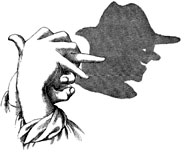
Is Georgetown Still Catholic?
LAST THINGS
One evening in February my wife and I went to hear Patrick Reilly speak at Georgetown University. He is the president of the Cardinal Newman Society, an organization that he founded shortly after graduating from Fordham University 15 years ago. The Society is dedicated to the “renewal of Catholic identity” at Catholic colleges, and takes its cue from John Paul II’s Apostolic Constitution for higher education, Ex Corde Ecclesiae. The general idea behind that document is that the mission of any university identified as Catholic should come from the heart (“ex corde“) of the Church.
It came as a surprise to me to learn that as many as 224 colleges and universities in the U.S. are recognized as Catholic by the U.S. bishops. Georgetown is among the best known, perhaps second only to Notre Dame.
Georgetown is a Jesuit university, and in fact the oldest Catholic university in the country — founded in 1789. It is located on the edge of the most fashionable part of Washington, D.C. The Exorcist was filmed there, and if you saw that scary (and actually pro-Catholic) movie, you saw the campus as it looked in the 1970s. It’s not that much different today, at least as seen from the main quad.
Georgetown is highly rated, ranking no. 23 in the annual U.S. News & World Report survey. About one in five of those who apply for admission are accepted, and for the privilege they pay over $43,000 a year in tuition, room and board. As one might expect, the University is rolling in money, with an endowment of perhaps $750 million. Its most famous alumnus is former President Bill Clinton. A little over half the students identify themselves as Catholics.
You May Also Enjoy
Religious convictions are deep and can easily override considerations of beliefs that are contrary to them, even in light of attempts at objectivity.
Young Christian faithful need to engage with the contemporary world while pursuing their chosen life's work.
Fr. Hesburgh proved to be a perfect avatar for the Notre Dame he created: an endorser of some kind of vaguely conceived “natural religion.”

